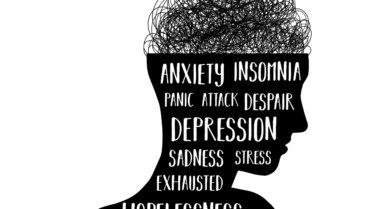Do you ever find yourself scrolling through social media and feeling envious of others’ seemingly perfect lives? Or maybe you feel that you’re not good enough because your accomplishments don’t measure up to someone else’s.
If so, then you’re familiar with the thief of joy: comparison. But don’t worry, there are ways to overcome it! In this blog post, we’ll explore why comparison can steal our happiness and provide tips on how to combat those feelings of inadequacy.
So let’s ditch the comparisons and start prioritizing our own self-worth!
The Impacts of Comparison
When it comes to comparison, the grass is almost always greener on the other side. We compare our lives to others and find that we always come up short. This can lead to feelings of inferiority and low self-worth. In addition, comparisons can also fuel envy and resentment.
Comparison is the thief of joy because it robs us of the happiness we experience in our own lives. When we focus on what we don’t have, we fail to appreciate what we do have. We become fixated on what we think is missing from our lives instead of enjoying all the good things that are right in front of us.
If you’re struggling with comparison, there are a few things you can do to overcome it:
- Acknowledge your thoughts and feelings without judgment.
- Recognize that everyone has different gifts and talents.
- Focus on your own journey and what makes you happy.
- Be grateful for all the good things in your life.
- Practice self-compassion and extend compassion to others.
The Reasons Why We Compare Ourselves to Others
It’s no secret that comparison is the thief of joy. We’ve all been there before; comparing ourselves to others and coming up short. It’s an all too common trap that we can fall into, but it doesn’t have to be this way. Here are four tips for overcoming comparison:
- Acknowledge Your Feelings
The first step to overcoming comparison is acknowledging your feelings. If you’re feeling jealous or envious of someone else, that’s OK. These are normal emotions to feel. What’s important is how you deal with them. Don’t bottle them up; allow yourself to feel them, but don’t dwell on them. Acknowledge them and then let them go.
- Be Grateful For What You Have
Another way to overcome comparison is to focus on gratitude. Instead of fixating on what you don’t have, take a moment to appreciate what you do have. This includes both material possessions and non-material things like your health, your friendships, and your talents and abilities. When you’re feeling envy towards someone else, take a step back and remember all the things in your life that you’re thankful for.
- Remember That Everyone Is On Their Own Journey
It’s important to remember that everyone is on their own journey in life. Just because someone seems to have it all together doesn’t mean they don’t have their own struggles and challenges going on behind the scenes. We all have our own unique set of circumstances and experiences, so it’s not fair to compare ourselves to other people.
- Celebrate When Others Succeed
Finally, try to celebrate when others succeed. Instead of feeling jealous or resentful, try to be happy for them. Happiness is a choice and it’s up to us how we choose to react to the success of others. Celebrating when someone else succeeds can be a great way to put your comparison into perspective.
Tips for Overcoming Comparison
When it comes to comparison, the first step is always awareness. Once you’re aware of the times when you compare yourself to others, you can start to catch yourself in the act and make a choice to change your perspective.
Here are some tips for overcoming comparison:
- Acknowledge your thoughts and feelings.
- Be mindful of your triggers.
- Practice gratitude.
- Shift your focus inward.
- Find your unique voice.
- Remember that we are all on our own journeys.
Redefining Goals and Priorities
It’s easy to become bogged down in comparison when we don’t feel like we’re measuring up. But what are we comparing ourselves to, and why? Our goals and priorities can get lost in the mix, leading us to believe that we’re not good enough.
Here are some tips for overcoming comparison and finding joy again:
- Identify your goals and priorities. What is important to you? Why do you want to achieve these things? When you have a clear idea of your goals, it’s easier to stay focused on them and resist the temptation to compare yourself to others.
- Celebrate your accomplishments. Give yourself credit for the progress you’ve made, no matter how small it may seem. Don’t dwell on what you haven’t accomplished yet; focus on the positive steps you’ve taken toward your goal.
- Be mindful of your thoughts. Comparison often stems from negative self-talk. Pay attention to the thoughts running through your head, and reframe them in a more positive light. Instead of “I’ll never be as successful as her,” tell yourself “I’m working hard and making progress toward my goals.”
- Practice gratitude. When we focus on what we’re grateful for, it’s difficult to simultaneously focus on what we lack. Make a habit of expressing gratitude for the good in your life, and you’ll find it easier to let go of comparisons.
Honoring Your Own Unique Journey
The pressure to compare ourselves to others is all around us. Social media, advertising, and even our personal relationships can trigger feelings of inadequacy and insecurity. But it’s important to remember that we are each on our own unique journey.Comparison steals our joy because it leads us to believe that we’re not good enough as we are. But the truth is, there is no one else like you in the world. You are special and deserving of happiness just as you are.Here are a few tips for overcoming comparison:
- Acknowledge your feelings. It’s okay to feel jealous or down when you see someone else succeeding. Recognizing your emotions will help you deal with them in a healthy way.
- Be mindful of your thoughts. Compare and despair go hand-in-hand. When you find yourself comparing yourself to others, try to reframe your thoughts in a more positive light. For example, “This person’s success does not mean that I am a failure.”
- Practice self-compassion. Be gentle with yourself when you make mistakes or fall short of your goals. Remember that everyone makes mistakes and that you are just human.
- Focus on your own journey . Comparison breeds dissatisfaction because it keeps us focused on what we don’t have rather than what we do have. Instead of comparing yourself to others, focus on your own life and journey . Respect the progress that you have made and celebrate your own accomplishments!
- Celebrate others’ successes. Instead of comparing yourself to others, be happy for their success. Genuinely appreciating someone else’s achievements takes away the sting of comparison and can make us feel better about our own accomplishments.
Creating Healthy Boundaries
Setting and maintaining healthy boundaries is a key part of any relationship – whether it be with ourselves, our partners, our families, or our friends. Boundaries allow us to establish what is acceptable and what is not, and help us to avoid getting hurt or taking on more than we can handle.
There are many different types of boundaries, but some common ones include physical, emotional, mental, and spiritual boundaries. It’s important to set boundaries that work for you and are appropriate for the situation. For example, you might have a boundary that you don’t want to be touched without your consent, or a boundary around how much you’re willing to share about your personal life.
Creating healthy boundaries can be difficult, especially if you’re not used to setting them. But it’s important to remember that we all have the right to set boundaries as needed. If someone isn’t respecting your boundaries, that’s not okay. You can speak up for yourself and ask them to stop.
If you’re having trouble setting or maintaining boundaries, there are plenty of resources out there to help you. Here are a few tips:
- Get clear on what you want and don’t want. What makes you feel good? What doesn’t? What do you need in order to feel safe and comfortable? Spend some time thinking about this so that you can be clear with others about your needs.
- Communicate your boundaries clearly and directly. When you know what you want and don’t want, let the other person know in an assertive way. Don’t be afraid to set limits or speak up if something feels wrong.
- Be prepared to enforce your boundaries. If someone doesn’t respect your boundaries, don’t be afraid to say no and stick to it. Confronting someone can be hard, but it’s important to stand up for yourself and take care of yourself first.
- Take time for self-care. Setting boundaries can be draining and can cause us to feel overwhelmed or exhausted. Make sure that you’re taking care of yourself so that you have the energy and strength to set and maintain healthy boundaries in your relationships.
Conclusion
Comparison is a natural part of life and can be both positive and negative. When it comes to comparing ourselves or our accomplishments to those of others, however, it becomes destructive.
By focusing on our own journey with gratitude for what we have, setting realistic goals that are meaningful to us, and using comparison as inspiration rather than punishment, we can develop habits that lead to greater joy instead of discontentment.
Everyone’s experiences are unique; so strive towards achieving your own satisfaction without making the mistake of comparing yourself to someone else’s success–it’ll almost always rob you from enjoying how far you’ve come in your own journey toward greatness.





Add Comment